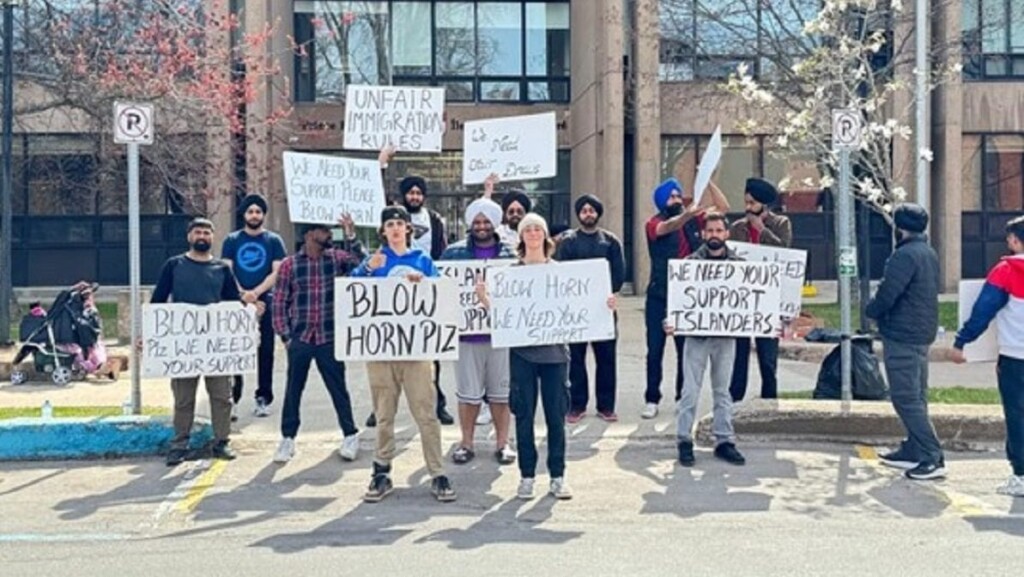Thousands of international students in Canada are at risk of deportation due to recent changes in federal immigration policies. This situation has sparked protests across the country, as over 70,000 graduates, who came to Canada hoping for a brighter future, now face an uncertain fate.
The Naujawan Support Network, a student advocacy group, has voiced concerns that these graduates could be deported when their work permits expire at the end of this year. The Canadian government’s recent policy changes have included stricter limits on study permits and a reduction in the number of permanent residency nominations, leaving many students in a precarious position. For many, this news has been devastating, as they had hoped to apply for permanent residency after completing their studies. Now, these students are left with large debts and broken dreams.
Across Canada, international students are staging protests to voice their discontent and fear of deportation. In Prince Edward Island, some have been camping outside the legislative assembly for over three months, protesting overnight. These students argue that the new provincial policies, which include a 25 percent cut in permanent residency nominations, have made their path to staying in Canada even more difficult. Similar protests have erupted in other provinces, including Ontario, Manitoba, and British Columbia.
Former international student Mehakdeep Singh, who is now facing deportation, shared his frustration: “I spent the most crucial six years of my life taking many risks to come to Canada. For the past six years, I studied, I worked, I paid taxes, I earned enough CRS [Comprehensive Ranking System] points, but the government has just taken advantage of us.” Singh used his family’s life savings to pay for his education in Canada, only to find himself nearing the expiration of his work permit with no clear path to permanent residency.
The situation has been further complicated by irregularities in the Canadian Experience Class (CEC) draws, which are crucial for those seeking permanent residency. Kanwar Sierah, an immigration consultant, noted, “At first, there were CEC draws every two weeks, so they prepared for that. Now, students don’t know when the next draws will be, causing huge backlogs.”
In Brampton, hundreds of international students and immigrant workers have held rallies to challenge the narrative that blames them for local housing and job shortages. Advocacy groups like the International Sikh Student Organization argue that these issues are the result of broader policy failures rather than the presence of international students. They are calling on the federal government to extend work permits and create clear pathways to permanent residency, emphasizing their significant contributions to the Canadian economy.
The protests highlight the growing frustration among international students who feel betrayed by the government’s policies. Many have invested heavily in their education and the Canadian economy, only to be told to return home with substantial debts and no clear future in Canada. The students and their supporters are urging the government to extend post-graduate work permits, ensure consistent and transparent pathways to permanent residency, and address the systemic issues that have led to their exploitation.
Without these changes, many fear that Canada will not only lose a substantial portion of its skilled workforce but also the trust and confidence of future international students.





